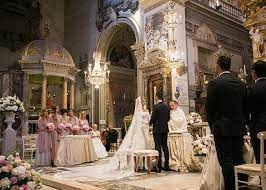From the account of the creation it is clear that the sense of complementarity and equity is the way that God intended the relationship between man and woman to be from the beginning (Gen. 1,27). But the story of the fall clearly shows that the inequality of the sexes in the life of the Israelites was a punishment that resulted from the fall and was not intended by God from the very beginning. Obviously marriage was presented as God's plan to increase the human race (Gen. 1,28). There is a deep sense of complementary, sense of bonding, sense of unity in the narrative of the creation of Eve. This is manifested in marriage as is evident from Gen. 1, 20-24. The Genesis account clearly shows that God intended marriage in terms of monogomy. The other trends entered into marriage practice through the influence of the people in the midst of whom the Israelites lived. In the later periods of the history of Israel, the concept of fidelity to the covenant between God and Israel becomes aIs. model for marital relationship ( Is. 54, 6-7). Marriage is relationship that should not be taken lightly. In the book of Deuteronomy the indissoluble character of marriage is presented with some exceptions which Jesus would explain as a concession for human weakness (Deut. 24, 1-40). But prophet Malachi speaks of a significant change in the matter of indissolubility: "For I hate divorce, says the Lord, the God of Israel" (Mal. 2, 15-16).
The ultimate goal of Christian economy of salvation is the building up of the Kingdom of God.The sacraments of the Church are the means for realizing this objective.The sacrament of matrimony has a particular role in the realization of this objective.My task is to place before you this specific role which this sacrament in the Church and in the world with a view to facilitate the coming of the Kingdom of God.
Through marriage the creative love of God becomes pemanently active in human society
The growth of human society which God wants to effect takes place to through human cooperation. The continuation of humanity is dependant o...

-
What do couples pledge to the Altar? " I . ..come before you freely and without reservation [fully]....and I promise to be faithful...
-
In March 1995, Pope John Paul II spoke of a profound "crisis of culture" which was against the world ... marriage & family. ...
-
The introductory rites put in evidence the fact that the relationship between the couple is, through the sacramental celebration, entering i...

No comments:
Post a Comment